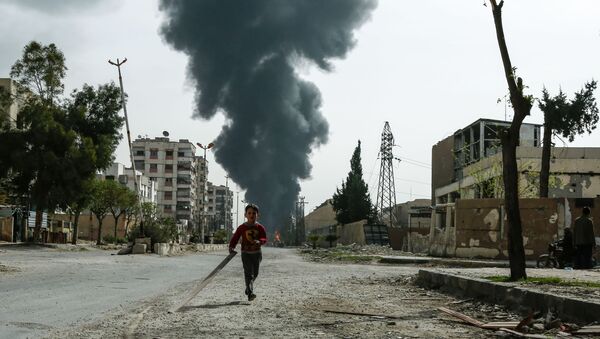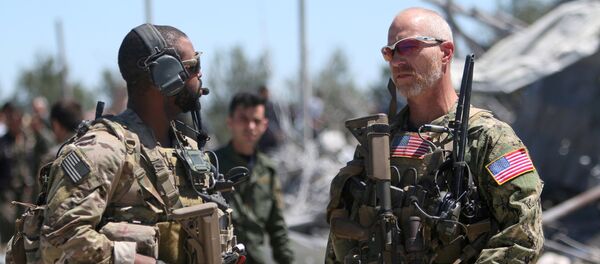"The potential for a clash there [in Syria] has, thanks to the Russian direction… been reduced," Mattis said on Tuesday.
Mattis said that Russian mercenary elements last week moved into more advanced positions near Deir ez-Zor across the deconfliction line and came "too close" to coalition and partner forces.
However, Mattis added, both sides drew back after deconfliction discussions between US officials and their Russian counterparts.
"It was resolved through the deconfliction communication line," he added. "It did not, you know, go… into harm's way, as it did there a month ago."
On February 7, the US-led coalition said it had carried out defensive airstrikes against pro-government forces in Syria that had attacked the headquarters of the US-backed Syrian Democratic Forces (SDF) east of the Euphrates River.
US officials later said that at least 100 Syrian pro-government troops were killed in the confrontation, while no coalition troops were killed or wounded.
The US-led coalition of more than 70 members is conducting military operations against the Islamic State (banned in Russia) terror group in Syria and Iraq. The coalition's strikes in Iraq are conducted in cooperation with Iraqi officials, but those in Syria are not authorized by the government of President Bashar Assad or the UN Security Council.



